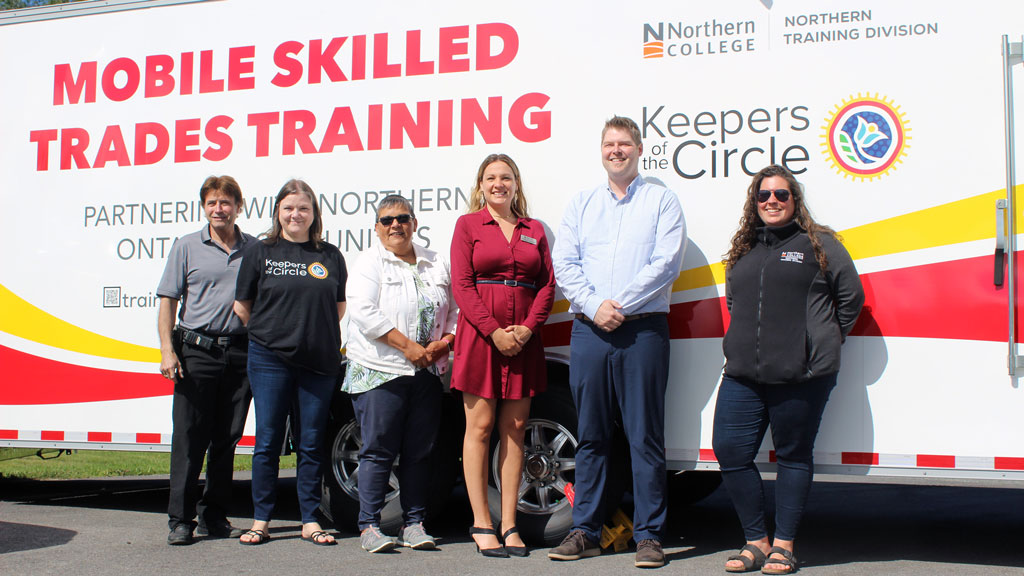Northern College in northeastern Ontario has historically worked closely with Indigenous communities on trades training but the long distance residents have often had to travel and the cultural differences they face at one of the college’s four campuses have been hurdles to their success.
“They are away from their families, friends, support network,” says Christine Heavens, executive director of Northern College’s community, business development and employment services.
To address the problem, the college is taking its training on the road.
“We have mobile trailers that have the equipment, resources and materials needed in the community so we can introduce people to the trades in an environment that allows them to have their support systems around them,” says Heavens.
The new mobile training program consists of four trailers that can be towed by pickup trucks to remote communities, sometimes five or six hours from the college.
The program is a collaborative initiative with Keepers of the Circle, a non-profit group providing education and wraparound support such as child care for Indigenous communities in northeastern Ontario.
The trailers, co-owned by the college and Keepers of the Circle, are equipped with materials and equipment to provide students with an introduction to a number of trades, including carpentry, plumbing, electrical and even welding.
They can be “customized” to meet the needs voiced by the community, says Heavens, pointing out curriculum flexibility is important to the program’s success.
“We go to a community by invitation and want to hear from them what their present and future needs are.”
Courses are typically held in a local shop or another indoor facility where tools and materials from the trailers for classes can be set up.
Heavens says a key to the program’s success will be to focus the learning on specific projects needed, such as a building renovation or construction of a new community gathering facility.
It gives students an opportunity to work on real-life projects, she says, pointing out that a pressing need in many Indigenous villages is housing.
“They want greener energy solutions. We want to help them understand and incorporate those (solutions) into their homes and buildings.”
The college’s training mandate includes Indigenous traditions and ceremonies presented by “traditional knowledge keepers,” she says, noting Indigenous students value story telling as part of the learning process so “we work with local tradespeople and others with (relevant) skills on bringing trades training to life.”
The portable training centres can go to remote villages even where access is only in cold weather on “winter roads” over frozen terrain such as muskeg and waterways. Candidate communities are anywhere from one to six hours away from campus.
Financing the mobile training centres is through the provincial government’s Skills Development Fund.
Heavens says with new funding announcements expected in a few weeks, the college hopes to firm up mobile training sites soon.
“If we benefit a couple of communities with six to 12 students each, that’s a significant win. We know it would be impactful to the communities (in some cases with populations under 100), but also to the region with respect to skills.”
Northern College has four campuses, one in Timmins and others in Kirkland Lake, Moosonee and Haileybury (Temiskaming Shores).



Recent Comments
comments for this post are closed